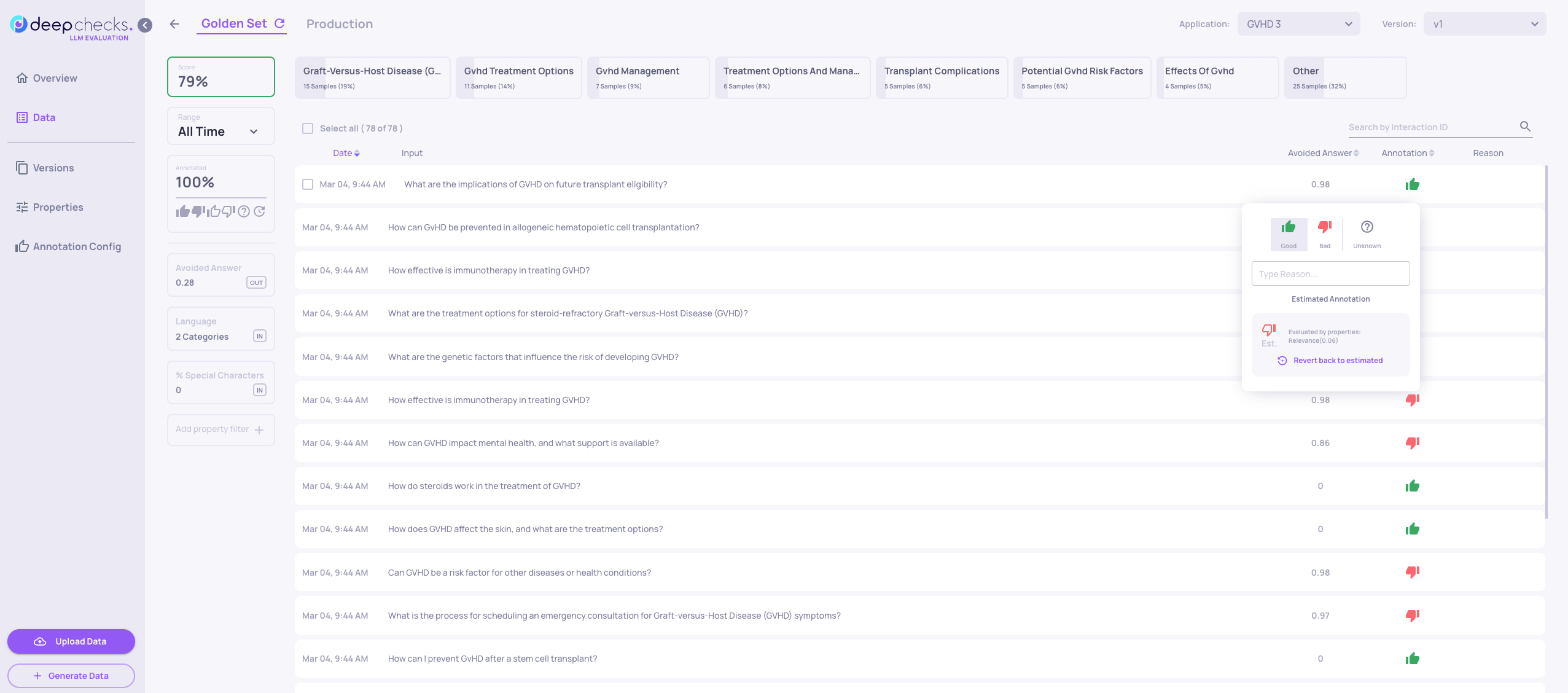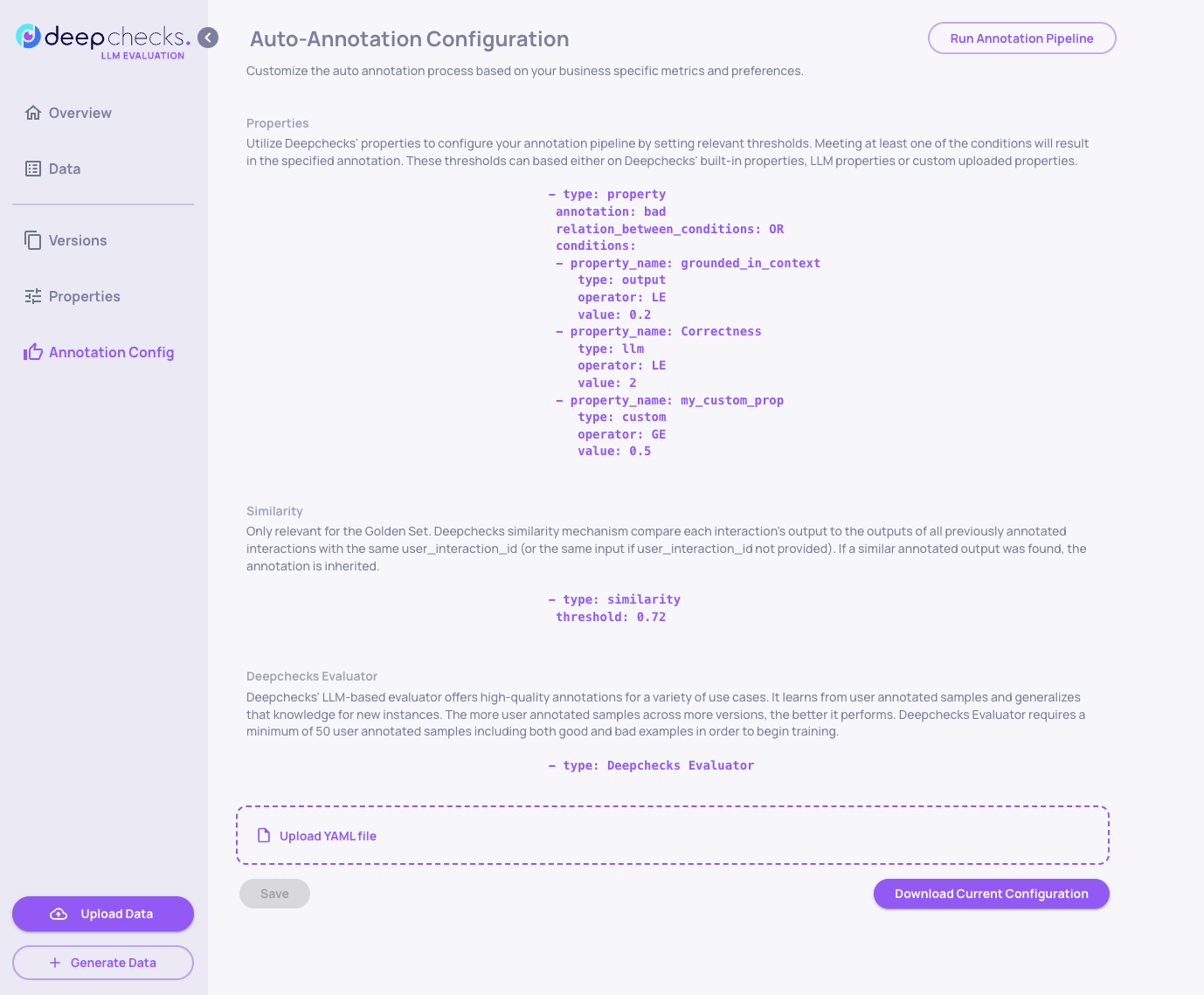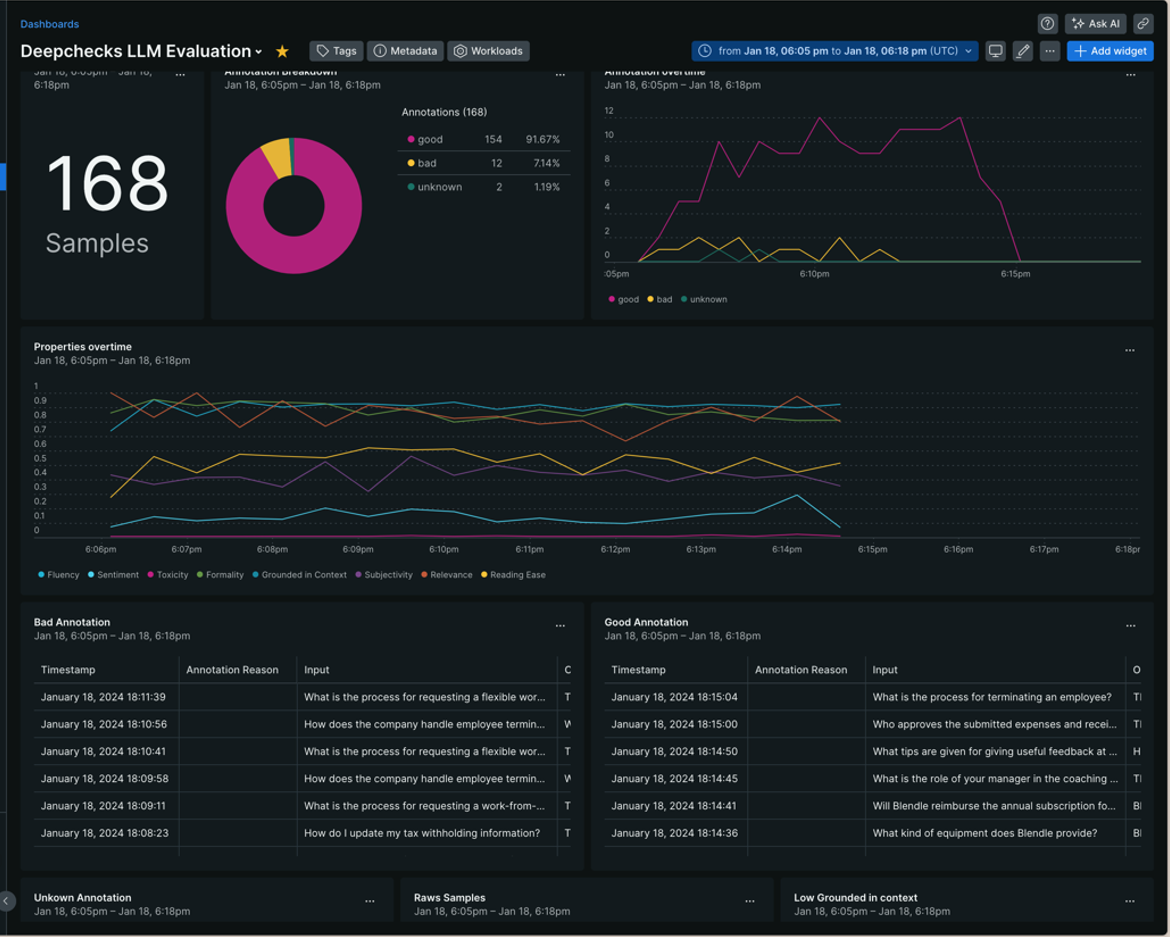New Relic
Applies also to any APM with accessible SDK to upload data
Using Deepchecks for Production Monitoring
To utilize Deepchecks to assist with this workflow, it is recommended to follow these steps:
- Build & annotate a golden set that is as representative as possible of the production data.

- Add and improve custom properties within the Deepchecks system that provide important information relevant to the specific use case. These can be either custom properties calculated earlier than “the Deepchecks stage” in the pipeline, or prompt properties created within Deepchecks.
- Try multiple configurations of the auto-annotation pipeline, by updating the config YAML file within the system. The YAML should utilize the most informative custom properties created as part of the previous stage. Choose the version that has the best combination of prediction accuracy, and alignment with acceptable business logic.

Editing the YAML file takes place within the "Annotation Config" tab.
- Periodically send data from each interaction to an APM such as New Relic, using Deepchecks’ SDK. Data should include the “estimated annotations”, leading properties, and for APMs that enable it – also the raw textual data. Here is a minimal example of sending data to New Relic (for other APMs, see integrations section):
from deepchecks_llm_client.client import dc_client
from deepchecks_llm_client.data_types import EnvType
from newrelic_event_publisher import NewRelicEventHandler
import os
import dotenv
EVENT_NAME = 'DEEPCHECKS_LLM_EVALUATION'
if __name__ == "__main__":
dotenv.load_dotenv(override=True)
app_name = os.getenv('APP_NAME', 'observability_demo')
version_name = os.getenv('APP_VERSION', '1')
dc_client = DeepchecksLLMClient(
api_token=os.getenv('API_TOKEN', '<YOUR_API_TOKEN>')
)
df = dc_client.get_data(
app_name=app_name,
version_name=version_name,
environment=EnvType.PROD,
return_builtin_props=True,
return_user_value_properties=True,
return_custom_prompt=True,
return_annotation_data=True
)
df['annotation'] = df['annotation'].fillna("unknown")
if os.getenv('NR_API_KEY'):
nr_handler = NewRelicEventHandler()
nr_handler.post_event(EVENT_NAME, df)- Configure dashboards, segments and alerts within the APM. See for example a monitoring dashboard within New Relic (following the previous example), that is based upon Deepchecks-created properties and annotations:

Monitoring dashboard within New Relic, that is based upon Deepchecks-created properties and annotations
- Interactions that are ingested by Deepchecks will also appear in the "Production" tab, enabling a deeper drill down regarding samples that need further investigation after the APM workflow.
Updated about 2 months ago